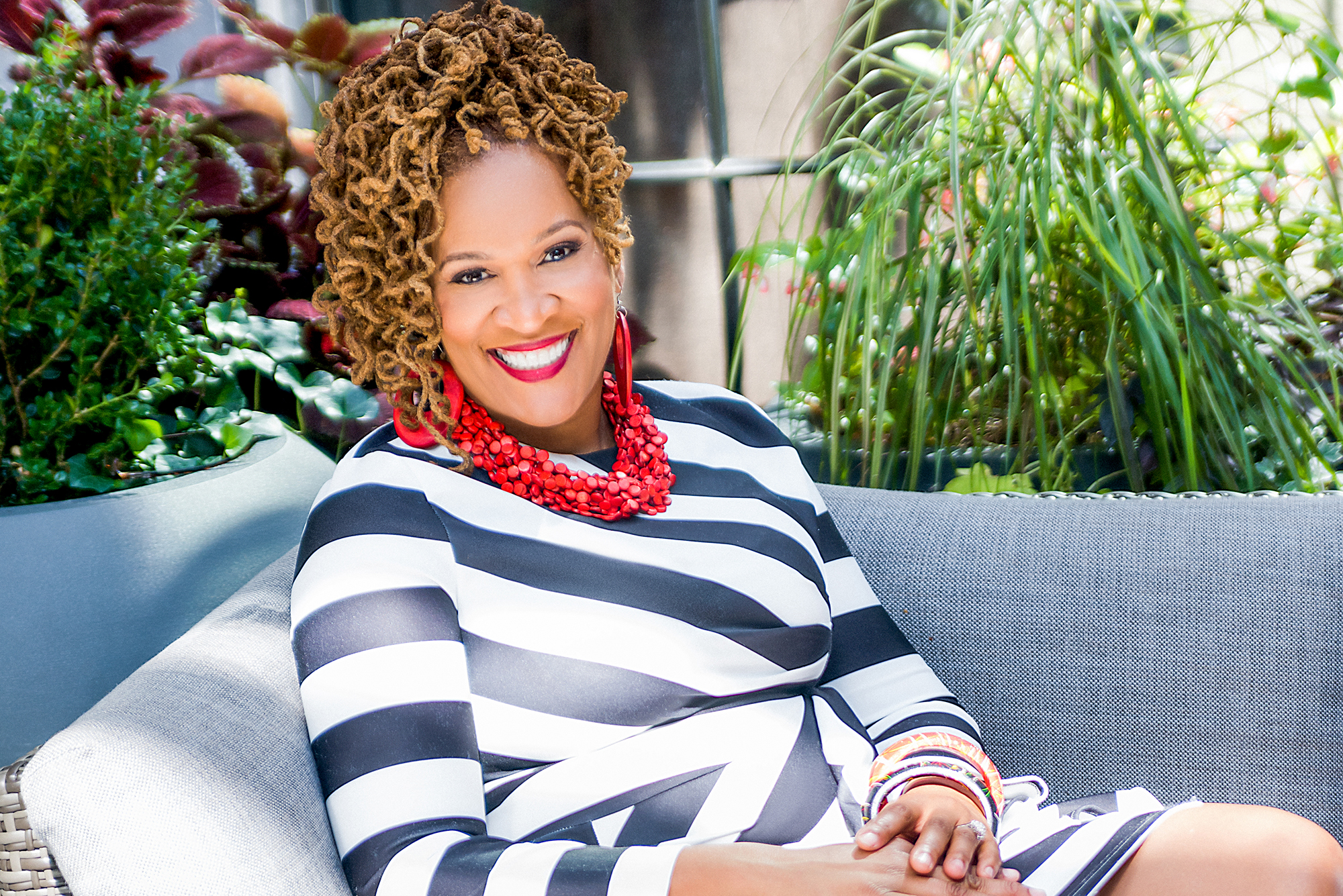STEM Advocate Ellington Is Keynote Speaker for UMB’s MLK Event
January 22, 2020 Lou Cortina
Morgan State professor aims to change the thinking about which students can be funneled into the field of science, technology, engineering, and math (STEM).
Over the next two weeks, The Elm will feature stories on the keynote speaker and the three Diversity Recognition Award winners leading up to UMB’s Dr. Martin Luther King Jr. and Black History Month celebration on Wednesday, Feb. 5, at MSTF Leadership Hall. You can register to attend the event here.
Today: Keynote speaker Roni Ellington, PhD, MA
Roni Ellington is committed to championing transformative education models that promote diversity in disciplines related to STEM (science, technology, engineering, and math). She laments, however, that many of the implemented programs show limited results because the issues and structures that produce the lack of inclusion persist.
“We must be willing to do the deep-level work that will uncover the perspectives and biases that underlie how we funnel students into the STEM pipeline, particularly how decisions are made about who can participate in rigorous STEM education and lucrative careers,” says Ellington, an associate professor in the Department of Advanced Studies, Leadership, and Policy at Morgan State University and the former coordinator of its graduate programs who will be the keynote speaker at the University of Maryland, Baltimore’s (UMB) Black History Month celebration on Feb. 5. “We must be willing to shift who we are as STEM educators and leaders, how we think about who can and will do STEM, and our beliefs about what it takes to be a ‘STEM person.’ ”
Ellington says that STEM education has been seen as an elite endeavor reserved for the so-called “best and brightest,” and that historically the perceptions of potential STEM ability have been influenced by race, gender, and socioeconomic status. Educators must be willing to rethink their views about which students should be directed toward STEM, she adds.
“Students who don’t fit the ‘vision’ of the best and brightest will continue to be marginalized until we can change the perceptions of who can be in the STEM community,” Ellington says. “This gives rise to many of the other challenges that underserved students face: feelings of lack of belonging, marginalization, identity conflicts, and an academic and social disconnect between who they are and what is required to be successful in STEM disciplines and careers.”
Ellington says some schools have adopted STEM initiatives that encourage all students to participate, but when you examine the students in the programs, they are primarily white, middle-class males. “This is very telling given that for over 50 years we have been engaged in equity-related work,” Ellington says.
“When students of color participate [in STEM], they are forced to adapt to the learning styles and communication strategies that reflect white, middle-class values,” she adds. “Hence, these students feel levels of isolation and exclusion that cause them to leave the pipeline and deem themselves as not ‘STEM people.’ Current research also shows that blacks and other under-represented minorities who achieve and persist in STEM are marginalized in careers and still face discrimination, even when they have demonstrated the competencies expected of STEM professionals.”
Ellington is doing her part to change this. In addition to her role at Morgan State, she founded the Transforming STEM Network, which works with schools and school districts to promote diversity and inclusion in STEM education. She is the principal investigator (PI) on a National Science Foundation grant focused on incorporating culturally responsive teaching into university mathematics classrooms, and she is the co-PI of the Bessie Coleman Project, which uses computer modeling and flight simulations to create STEM pathways.
Her research has been featured in leading journals and presented to local and national audiences, including the National Council of Teachers of Mathematics, the American Educational Research Association, and the National Association of Science Teachers. She has written several articles on mathematics and STEM education and is co-author of the book Capitalizing on Culture: Successful Patterns of Parental Participation for African American Students, which highlights the ways in which parents can use their own human and social capital to advocate for their children and help foster their success in STEM-related disciplines.
Ellington says she’s honored to be UMB’s keynote speaker on Feb. 5, “particularly the idea to merge the dream of Dr. Martin Luther King Jr. [MLK] with the focus on STEM access and equity.” She’s impressed with the University’s CURE Scholars Program, a pipeline initiative designed to prepare sixth- to 12th-grade students in Southwest Baltimore for competitive and rewarding careers in research, STEM, and health-related fields.
“CURE has the promise to move the needle on the participation of under-represented minorities in STEM, especially since the program starts with middle school students,” Ellington says. “Research shows that many students lose interest in STEM, so focusing on students at this age and providing them with mentors has great potential in supporting students’ interest, achievement, and persistence in STEM.”
As for speaking at an MLK-inspired event, Ellington is proud to do so because King inspired her.
“Martin Luther King Jr. embodied the ideals of freedom, justice, and equality, and these ideals speak to me,” she says. “He did not just want freedom and equality for black people, he wanted this for everyone. I’m also moved by the courage it took for him to speak truth to power even though his life was in constant danger. I find that level of courage to be commendable, and I strive to be someone who speaks up against injustice no matter what.”